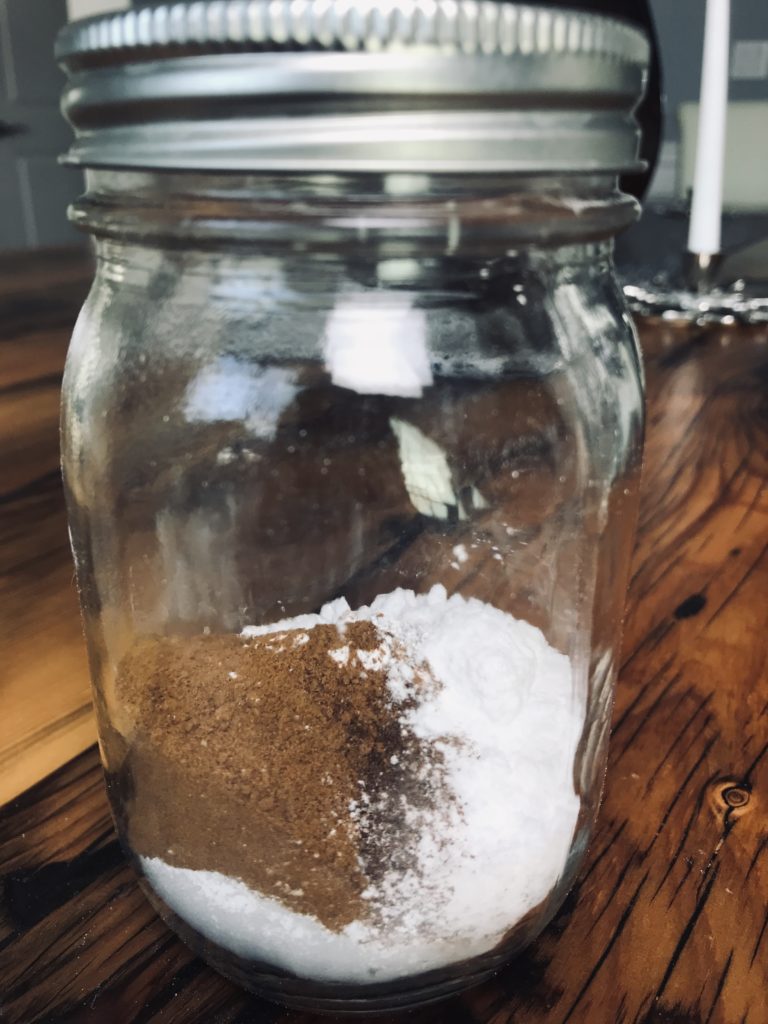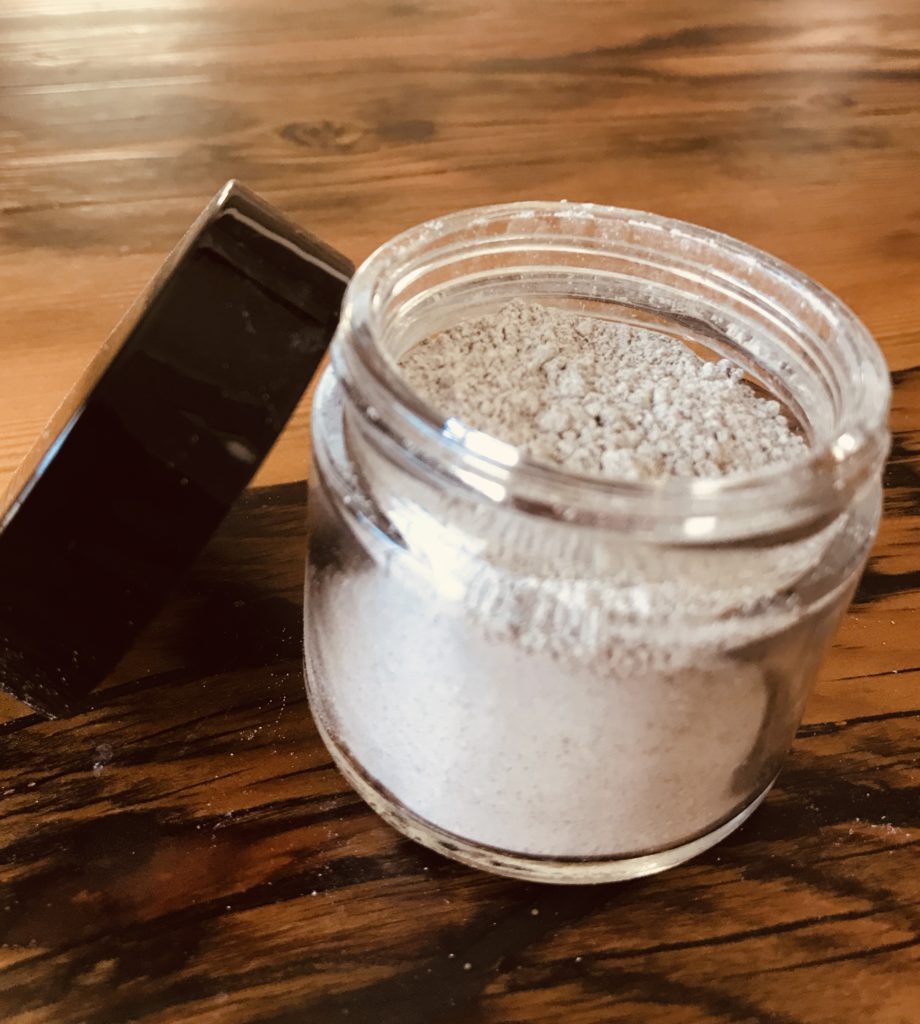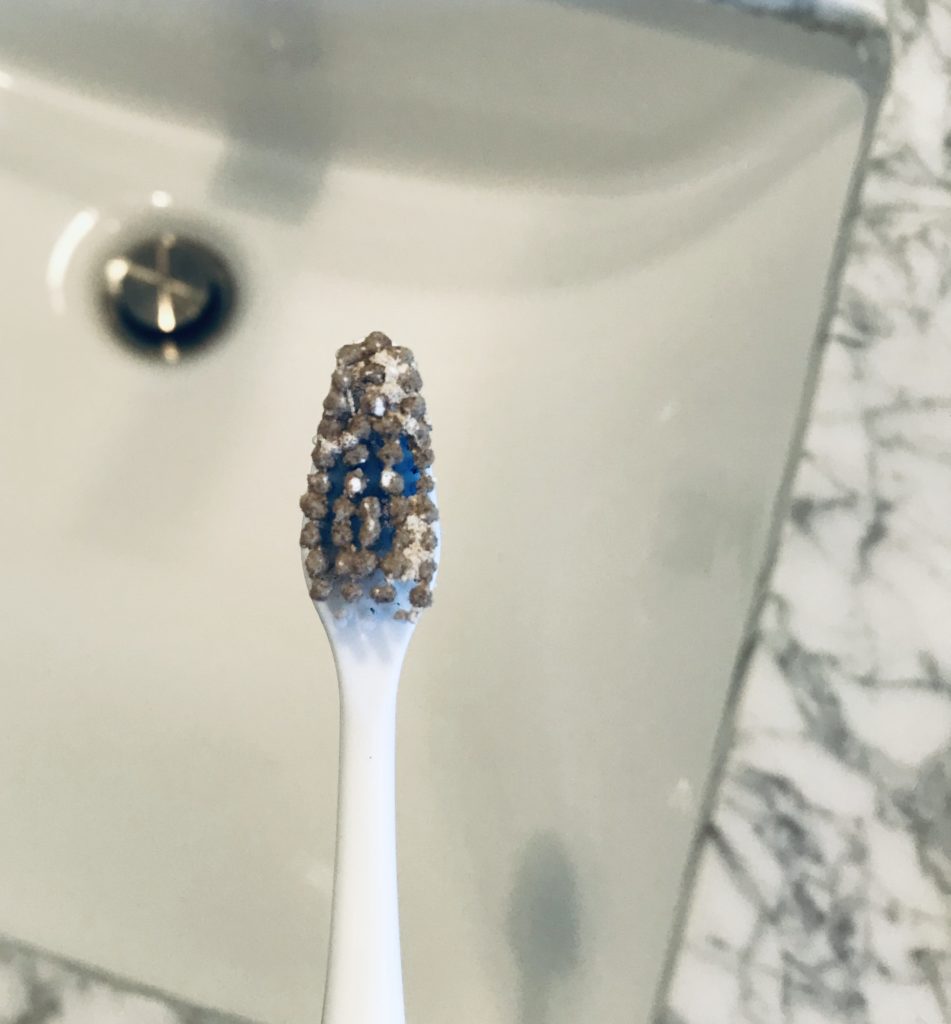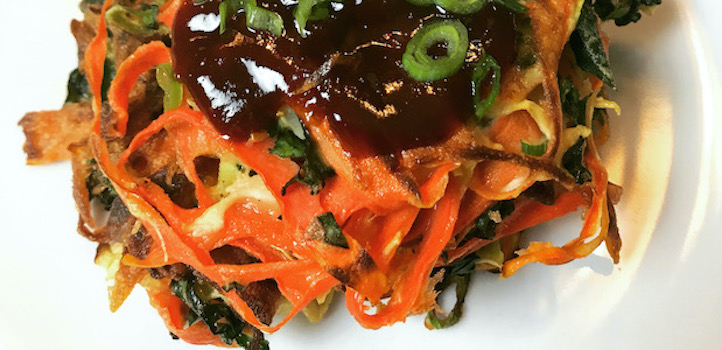Tooth powder sounds like a magical dust that the tooth fairy doles out to a select few (because magic usually comes in limited quantities) to provide a lifetime of perfect oral health. Simply sprinkle the dust on your teeth and voila. If only it were that simple!
Relatively recently I began to learn about biodentistry, the effects certain dental procedures can have on the body, and the hidden toxins in some flosses and toothpastes. Years ago I switched to a plant-based toothpaste with a blend of essential oils—free from fluoride, synthetic dyes, artificial flavors and preservatives. At first I wasn’t a fan of this non-foaming, odd tasting toothpaste. It eventually grew on me, however the $15 per tube price tag never did.
As time came to re-up my toothpaste stash, I began to search for another natural alternative that is just as—if not more—effective than the swanky toothpaste to which I had become accustom without the luxurious price tag. Enter tooth powder.

While tooth powder may sound like a newfound fad, it actually dates back to ancient times, used by the Greeks, Romans, Chinese and others. It’s as simple as it sounds. Tooth powder is a mix of powders designed to clean your teeth, freshen your breath and promote remineralization (replenish minerals that naturally decline with age and lifestyle choices). I’m just now beginning to realize the immense importance of remineralization and stopping demineralization, and that the choices I make can influence both.
So how does tooth powder compare to toothpaste? Consider a few things…
Ingredients in commercial toothpaste
Every toothpaste brand is different—not all contain harmful ingredients—however many contain unnecessary ingredients. It’s worth a look on the label. Commercial formulas often times add fluoride, artificial colors and sweeteners, glycerine (which prevents remineralization), foaming agents and aluminum. These chemicals come with a variety of risks, including reduced IQ levels, hormone disruption, allergies, brain and mood disorders, and neurodegenerative conditions among others.
Common ingredients in tooth powder
- Bentonite clay (food grade)Not only does it bind to heavy metals, bacteria and toxins, it is alkaline and contains minerals *(calcium, potassium, magnesium and silica) that can remineralize teeth. I can’t wait to experiment with bentonite clay in making facial and hair masks.
- Calcium carbonate powder
For cleaning and polishing! Calcium carbonate can remove stains and polish the enamel—you simply want to make sure the particles are super fine to prevent scratching. - Mint, peppermint essential oil, cinnamon and cloves
Aside from making the powder tasty, these flavors are known to have antimicrobial, anti-fungal and anti-inflammatory effects. - Xylitol or erythritol
Aids in the prevention of tooth decay by reducing the growth of plaque, inhibiting bad bacterial growth and it raises the pH in your mouth by stimulating saliva production.Note that not all xylitol is the same. Best route is to use a xylitol that is made in the USA and originates from birch trees versus corn which often contains GMOs. Unlike xylitol, erythritol is safe for dogs and their oral care.
Bonus
Tooth powder is stored in a glass jar rather than in a plastic tube! Better for you and better for the earth.

Recipe
I used this recipe from Wellness Mama, but opted against baking soda since it can be abrasive. I used dried spearmint, added 2 drops of high-quality peppermint essential oil (2 drops of spearmint oil might be nice, too) and 1 1/2 teaspoons of cloves (I’ll likely use 2+ teaspoons next time) and I had xylitol granules so I placed those in a coffee grinder to create a powder. Also consider adding 2-3 teaspoons of myrrh gum powder due to its antiseptic properties.
An important consideration… instead of dipping your brush into the powder (who needs added germs?!), use a small spoon to sprinkle the powder directly onto your toothbrush.

The verdict…
I wish you could hear the tone of my voice and see the expression on my face when i say that I love it, LOVE it, looooooooove it! Today was a rare occasion where I had a cup of decaf coffee and I could clearly see the brown “leftovers” on my toothbrush. The powder produced a nice foam… much more subtle than conventional toothpastes, but it was a nice texture and consistency. And the taste. I discovered how much I really like cloves! I am a convert for sure. My teeth also felt incredibly smooth and my breath fresh (perhaps the combo of oil pulling and tooth powder). I suppose the true test is when I see the dentist next. That’s in about four weeks so I’ll report back then to share whether there’s any changes, particularly with one trouble spot that never seems to improve.
Consider tooth powder a cleanser for your teeth. Because your teeth deserve pampering too!
